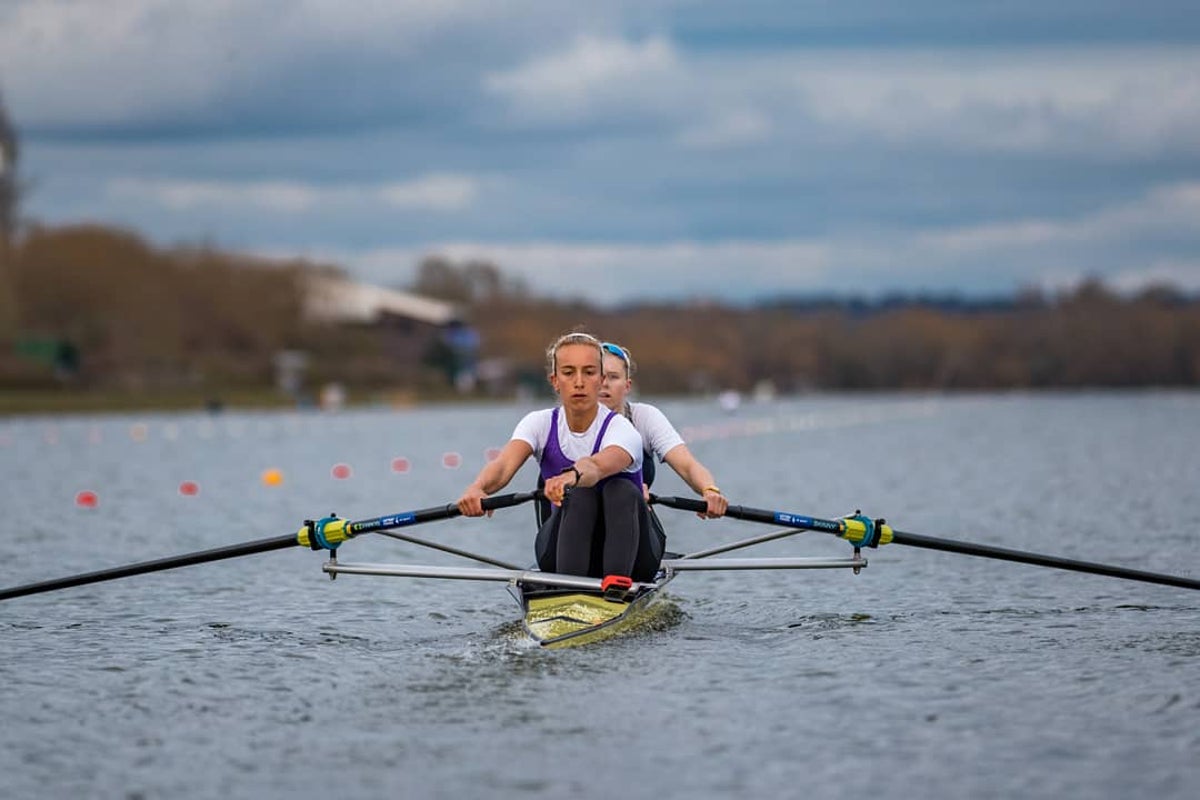
Oonagh Cousins had just been pre-selected for the Tokyo Olympics when she was hit with Covid in March 2020.
A new virus which would go on to have far-reaching consequences for the whole world was something that initially just felt like a mild cold to her.
It was only when the now-28-year-old was unable to take part in vigorous training exercises with her rowing team that the reality of her long Covid symptoms dawned on her.
“I realised then, I was in it for the long haul,” she tells The Independent.
Nearly four years on and long Covid has forced Oonagh, from Brentford, to completely retire from rowing because of the crippling symptoms.
Oonagh Cousins has retired from rowing completely— (Oonagh Cousins)
Now, researchers have found that long Covid can cause severe muscle damage and other problems if sufferers take part in intense exercise or physical and mental exertion.
The study published in Nature Communications compared 25 patients with long Covid and 21 people who had suffered from the virus and made a full recovery.
To control for any other factors, all the participants had been fit and healthy before contracting the virus, were of working age and none had been hospitalised with the illness.
Participants were asked to take biopsies before and after cycling to assess the impact of exercise on their bodies.
The study found that those with long Covid experienced limited capacity for exercise, far more tissue damage, microclots, metabolic dysfunction and post-exertional malaise.
While there was considerable variation between participants, those with long Covid had a lower exercise capacity, on average, than healthy participants.
It also found that the mitochondria in people with long Covid did not work as well as those who had fully recovered - and that the function of mitochondria was worsened after exercise.
Oonagh, an ambassador for the Long Covid Support Group whose story was used in the closing statements of part of the Covid inquiry, welcomed the research.
“It’s great we’re getting the research to prove what patients have known for a very long time,” she said. “This idea that exercise is good is so drilled into us.
“When you can’t even walk to the shops and struggle to do the dishes, the idea that exercise could be helpful is clearly bonkers.
“Unfortunately it takes research for people to really listen so I’m really glad that we now have the evidence to prove that.”
She had been pre-selected for the Tokyo olympics before being forced to retire due to long Covid— (Oonagh Cousins)
Claire Higham, 47, can no longer work due to her long Covid symptoms. She told The Independent that she was “completely thrilled” at the research.
Claire, who runs the Long Covid Advocacy Group, says that one of the major problems is people’s disbelief at how poorly sufferers really are.
“A lot of people aren’t aware of things like post-exertional malaise. We’ve not had the physical evidence to back up the patient testimony,” she said.
“People know this, exercise and exertion hurts and makes us deteriorate. We’ve been saying this.
“Now we have the evidence to verify this, people are going to be believed and it can build on more research to show that our mitochondria aren’t working and microclots are an issue and so on.”
She says that sufferers are often given exercise and activity as a treatment for the condition, which the study now shows can exacerbate and worsen symptoms. She has had to cut off her hair as it is too exhausting to wash it and has to rest 19 hours a day in order to function for five.
Claire Higham was forced to cut off her hair as it was too strenuous to wash it— (Claire Higham)
Dr Rob Wüst, an author of the study at Vrije Universiteit in Amsterdam told The Guardian that the findings highlighted that people with long Covid should not undertake intense exercise.
“It damages your muscles, it worsens your metabolism, and it can explain why you feel muscle pain and fatigue up to weeks after the exercise,” he said.
It’s an issue that 46-year-old Robin Timms from Leicester is very aware of. He works a physically strenuous job at a large supermarket where he is required to walk over 10,000 steps a day. He says he’s lost nearly a stone since working with long Covid but has no other choice.
“I’m a picker who collects items that people order online. I no longer do the offloading of the vans, and I find that I walk at a much slower pace.”
Robin and his wife Cheryl tried to apply for Personal Independence Payment, the government’s disability benefits so he could reduce his hours or have a day off.
He was rejected due to the fact that he still worked and the couple feel the condition isn’t covered adequately enough in disability law.
Cheryl and Robin have been married for ten years and hope Robin will be able to take the time he needs to rest— (Cherly and Robin Timms)
“I’m really, really angry,” Cheryl told The Independent. “We’ve been married nearly ten years and I’ve seen his health deteriorate so much with this. He has brain fog and we can’t do anything outside of work, eat and sleep.
“This could be the next dementia or Alzheimer’s. People are getting worse because there’s so much misunderstanding around it by employers and everyone.
“I went to the Covid inquiry when Boris Johnson called long Covid ‘bollocks’, it really angered me. I’m happy the research is out but what will they do with it? They need to do something with it.”







